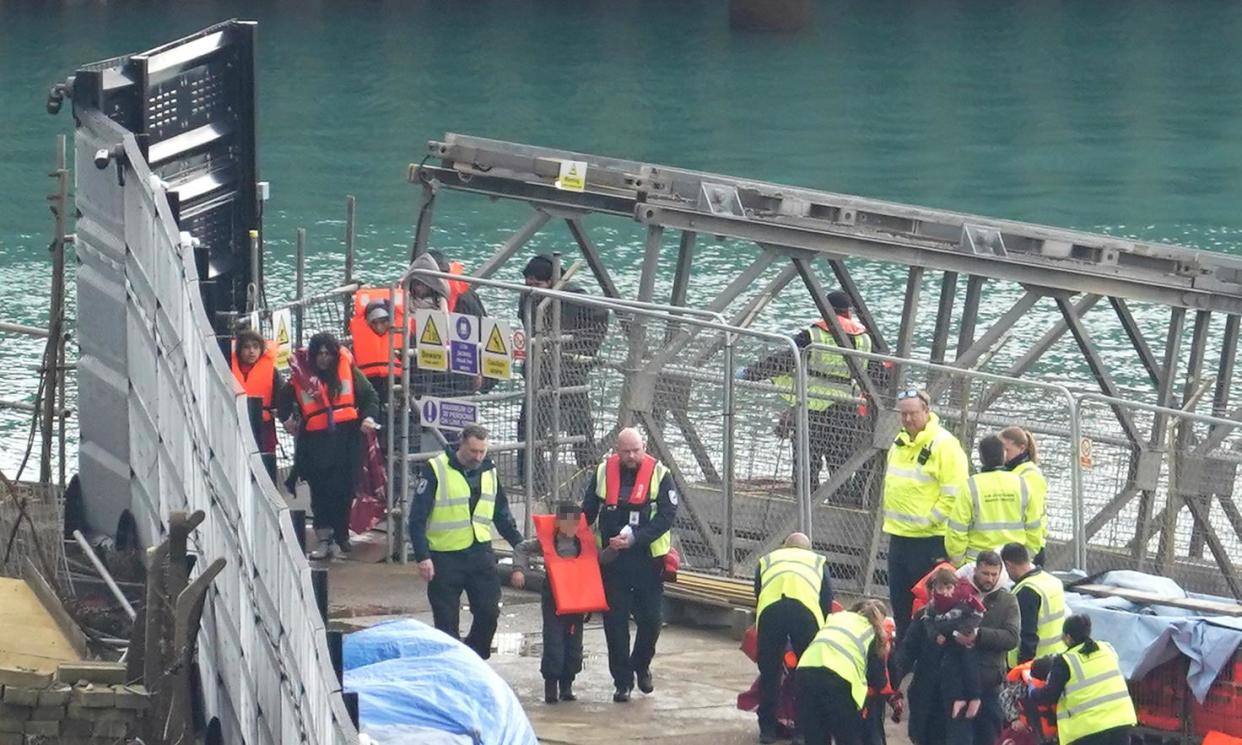Kent council’s housing for lone child asylum seekers ‘may run out’ in March

Accommodation for lone asylum seeker children who arrive on the Kent coast in small boats could run out before the end of this month, a council has warned, placing them at risk.
Kent county council has legal duties under the Children Act to take these children into care on arrival in the UK. Due to its geographical location, it is under disproportionate pressure to look after these children compared with other local authorities. Under the national transfer scheme, many of the children are subsequently moved to different local authorities around the country after arrival.
However, due to high numbers of children arriving on their own on small boats and delays in moving them to other areas, Kent says it is struggling to cope and that its spaces for these children could run out before the end of March.
As a result of a shortage of accommodation the council has had to place a small number of older children in unregistered accommodation as a “last resort”.
At a high court hearing last week the council submitted evidence that as of 4 March it was accommodating 423 unaccompanied children seeking asylum, of which 346 were in long-term care and 77 awaiting transfer to other local authorities.
More than 4,000 people have crossed the Channel in small boats so far this year, ten per cent higher than this time last year, despite the prime minister Rishi Sunak’s pledge to “stop the boats”. Historically, about one in 10 of the number crossing have been unaccompanied children.
The high court hearing was part of a long-running case to challenge the use by the Home Office of hotels, mainly along England’s south coast, to accommodate newly arrived lone asylum seeker children, after it emerged that since June 2021 440 children had gone missing from these hotels with 132 not subsequently found. It is feared that many of the missing children have fallen into the hands of traffickers and have been subjected to exploitation.
At an earlier high court hearing last December the Home Office was banned from accommodating lone asylum seekers in hotels apart from for very short periods “in true emergency situations”.
At the end of January 2024 the last of several hotels used by the Home Office to temporarily accommodate newly arrived children was closed, with two children suffering from suspected diphtheria having been placed in hotel accommodation earlier that month.
While the decision to end hotel use for these children has been welcomed, the latest court hearing has shown that the problem has not yet been solved.
The case is a complex one involving several local authorities, the charity Ecpat UK – Every Child Protected Against Trafficking, the Home Office and the Department for Education.
Hugh Southey KC, representing Kent county council, argued in written statements that “Kent’s safe placement capacity may be exceeded as soon as this month” with Home Office’s own modelling envisaging the council exceeding its capacity later this month.
“Kent county council cannot magic up external placements that do not exist,” he said. He asked the court to make an order for government to take steps if Kent finds it cannot discharge its duties under the Children Act due to large numbers arriving. The request for the court order was opposed by others at the hearing.
According to forecasts provided to the court, between March and December this year up to 3,541 unaccompanied children could arrive on small boats although Kent county council has places for just 1,631 of them.
While the council is working with government on the issue, fundamental disagreements remain between them about the best way forward.
A draft version of a joint emergency response plan between the council and the government was discussed in court and disclosed to the Guardian. It outlines different trigger points with yellow, amber, red and black warnings attached depending on the severity of the shortage of accommodation for children, with escalation to ministers should the red trigger point be reached.
Shu Shin Luh, representing ECPAT UK, told the court that it was a “groundhog day” situation continuing to leave vulnerable children in limbo.
The judge, Mr Justice Chamberlain, told the court: “My number one priority is to work out a solution that avoids children not being looked after.”
He is expected to give judgment in the case after Easter.

 Yahoo News
Yahoo News 
